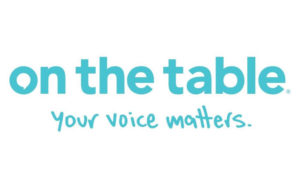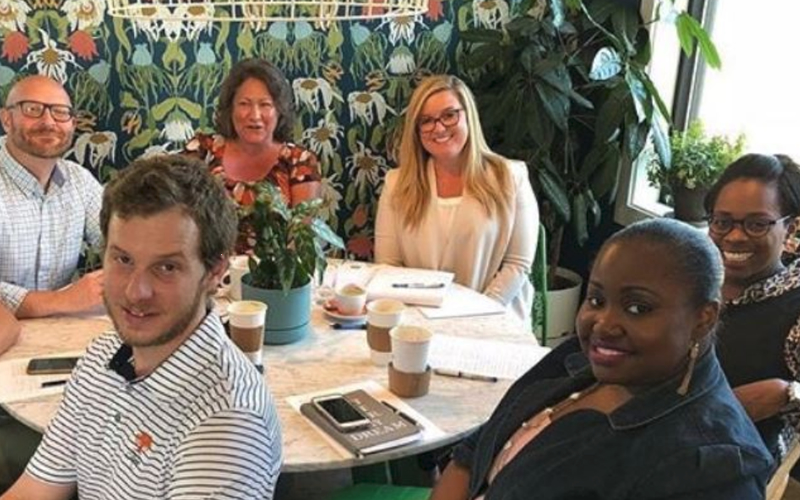By Andy Brack, editor and publisher | Most people don’t have the time or inclination to attend lots of public meetings where elected officials make decisions that impact their lives. Most people have got better things to do, including not being bored (much of the time) out of their skulls in meeting rooms.
 But every community has faces familiar to elected officials. These are the squeaky wheels, the people who show up and make their cases, time after time. And more often than you’d think, they get the grease in the public policy process because they advocate for their positions. But just because these folks are squeaking doesn’t mean that what they want is what most people want.
But every community has faces familiar to elected officials. These are the squeaky wheels, the people who show up and make their cases, time after time. And more often than you’d think, they get the grease in the public policy process because they advocate for their positions. But just because these folks are squeaking doesn’t mean that what they want is what most people want.
A new foundation in the Lowcountry is working on a way to give voices to the voiceless – to engage more people so they can share what’s good and what’s challenging in their neighborhoods and communities. Think of their project as a community-wide focus group that seeks to find out what’s really on people’s minds.
The Library Foundation of the Lowcountry tested the project, dubbed “Lowcountry On the Table,” to see what would happen if varied small groups of people sat together for an hour or so to just talk about life. Across Charleston, Berkeley and Dorchester counties on Tuesday, more than 60 groups of six to 10 people gathered for a meal or refreshments in homes, libraries, businesses, Rotary clubs and other places to explore what unified them and what was keeping people apart.
What resulted was phenomenal. Strangers shared. Acquaintances became a little closer. Neighbors engaged.
Initial results show virtually all attendees were satisfied with the quality of these unstructured conversations. Three in four committed to taking more action to improve their communities. And seven in eight met someone they didn’t know.
The table discussions, arranged independently by volunteer hosts, engaged diverse groups that looked like the area as a whole. Some 28 percent of participants were African American, 14 percent were Hispanic and 6 percent were teenagers. They were distributed in urban, suburban and rural settings.
Topics ranges from education, traffic and flooding to growth, affordable housing and more. Here are some of the comments from two sessions:
 Traffic: “When I hear the conversation about traffic, they never ask why you were in the car. It’s almost the presumptive car culture. Part of the solution could be better retail services and opportunities in their neighborhoods” so people don’t have to drive so much and clog up the roads. In another group, a guest similarly observed, “When you can start taking away the reliance on cars, you can start creating dynamism in neighborhoods … by not relying on cars.”
Traffic: “When I hear the conversation about traffic, they never ask why you were in the car. It’s almost the presumptive car culture. Part of the solution could be better retail services and opportunities in their neighborhoods” so people don’t have to drive so much and clog up the roads. In another group, a guest similarly observed, “When you can start taking away the reliance on cars, you can start creating dynamism in neighborhoods … by not relying on cars.”
Education: “We need more autonomy in neighborhood schools … so they are running themselves,” one man said. Another added, “There is a segment of schools not performing to the standards we expect.” Others added that schools needed to focus more on improving diversity, reducing re-segregation, , focusing on skills and improving leadership.
Housing: “We’re running a segment of the population off of the peninsula” because of the lack of affordable housing.
But what was really interesting in these sessions was how positive participants were about their communities.
“The people are friendly,” one elderly man said. “It’s amazing how helpful people can be.”
Another added, “Seeing the way people come together here is a gift. If you go to Anywhere USA, you don’t have people who have a habit of gathering together.” Another person who loved living in Charleston weighed in, “Things are getting done. … Even when it is bad, how bad is it really?”
All communities have challenges and opportunities. What Lowcountry On The Table, which will broaden to hundreds of tables in the fall after this successful pilot, showed was how vital it is for people to connect more and have conversations that can lead to better places to live.
Bottom line: We need to engage in our neighborhoods to talk more about things that we might not be comfortable with and talk with people with whom we might not normally talk. More than likely, we’ll learn a lot – and be surprised at how much we have in common.
- Have a comment? Send to: editor@charlestoncurrents.com




 We Can Do Better, South Carolina!
We Can Do Better, South Carolina!
























